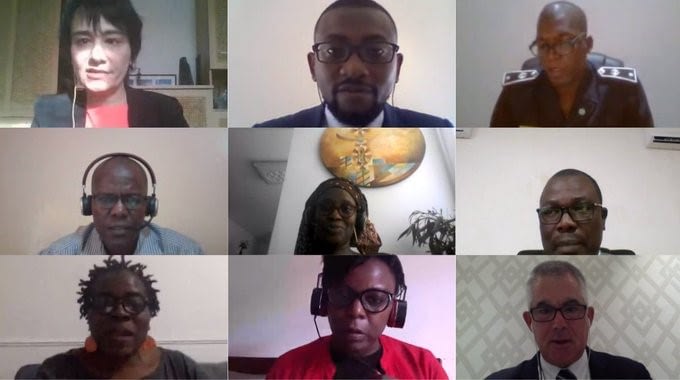
On 16 – 18 and 30 June 2020, the IIJ convened its first online workshop under the IIJ Juvenile Justice Initiative. The Online Sectoral Workshop for Investigators brought together 55 investigators and other practitioners including defence counsels, prosecutors, judges and detention officers. Sixteen countries across the Sahel, North Africa, East Africa and Southeast Asia were represented. The main objective of the workshop was to build the capacity of investigators in using and promoting effective practices to protect the rights and ensure the best interests of the child as a primary consideration in terrorism cases involving juveniles. The training highlighted the content of the IIJ Investigators’ Juvenile Justice Practitioners’ Note (IIJ Investigators’ Note), which supports the operationalisation of the GCTF's Neuchâtel Memorandum on Good Practices for Juvenile Justice in a Counterterrorism Context.

The practitioners were divided into two groups to accommodate the different languages and time zones. The English-speaking group included practitioners from Southeast Asia and East Africa, and the French-speaking group included practitioners from North and West Africa.
During the dynamic discussions, the practitioners provided their perspectives on efficient multi-agency approaches to handling juvenile counterterrorism cases. They emphasised the need to divest themselves of repressive roles and take on the roles of educators when it comes to handling cases involving children. Although they recognised that there should not be a trade-off between the protection of the community and the best interests of the child, they concurred that alternative measures such as diversion programmes are not only preferable to detention, but also offer the greatest opportunity for successful rehabilitation of children accused of terrorism-related offences, and are often the most affordable option for authorities. Workshop facilitators provided guidance on effective collaboration between investigators and other practitioners to determine the best alternative programmes to incarceration for children according to the nature of the charges, the specific circumstances, and the nature of the conduct in question.
Following the conclusion of the first stage of the online workshop, the IIJ distributed a fact-pattern exercise to the practitioners, with questions tracking key issues addressed by the IIJ Investigators’ Note and discussed in the previous sessions.

On 30 June 2020, both groups of practitioners reconvened for a final session of the workshop on a multilingual platform. The practitioners engaged in productive discussions on how they would address terrorism cases involving children within their national frameworks, emphasising the rule of law and the best interests of the child. Practitioners from a number of countries identified opportunities for improvement in national practice, and committed to make changes or to practical recommendations to their respective authorities to adopt new, child-friendly policies in line with international law, the rule of law, and child justice standards.
Practitioners reported that they found the training immensely valuable and commended the IIJ for its continuous capacity-building efforts utilising innovative online platforms to overcome challenges presented by the COVID-19 pandemic and related restrictions.
For more information on this workshop or the IIJ Juvenile Justice Initiative, please contact Programme Manager Emerson Cachon.
